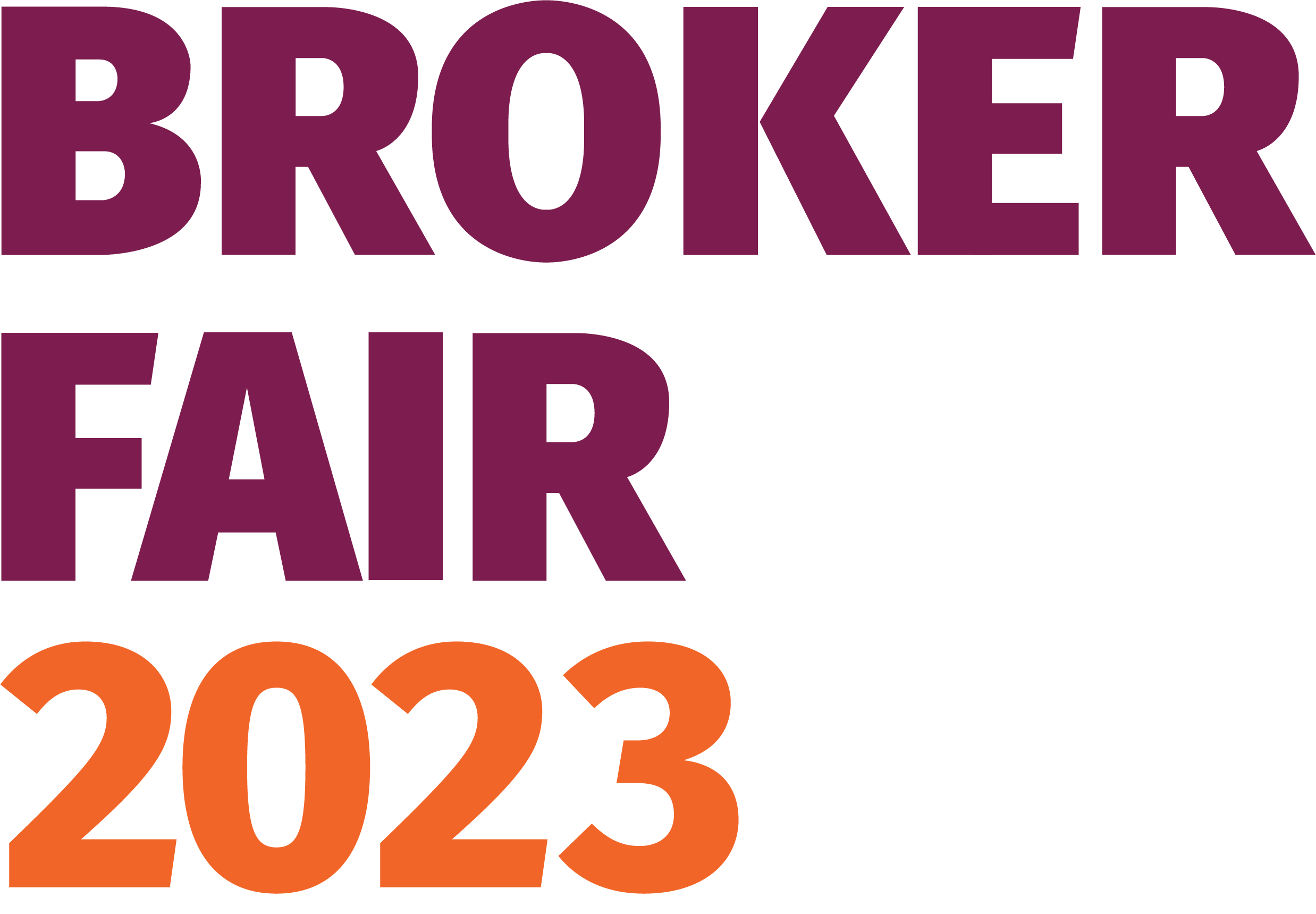Articles by deBanked Staff
Register for The 5th Annual Alternative Finance Bar Association Conference
May 22, 2023The AFBA Conference is BACK.
 If you are an attorney in this industry, you won’t want to miss the Alternative Finance Bar Association’s (AFBA) 5th Annual Conference, here in NYC June 5-6. They will be covering current events in the legal world of alternative finance, including upcoming NY disclosure requirements, recent caselaw developments, latest in collections law, regulatory current events and a lot more. This is an extremely reputable bar association with top notch attorneys in the field.
If you are an attorney in this industry, you won’t want to miss the Alternative Finance Bar Association’s (AFBA) 5th Annual Conference, here in NYC June 5-6. They will be covering current events in the legal world of alternative finance, including upcoming NY disclosure requirements, recent caselaw developments, latest in collections law, regulatory current events and a lot more. This is an extremely reputable bar association with top notch attorneys in the field.
For more detailed information & a registration link, click here: https://www.eventbrite.com/e/afba-5th-annual-conference-tickets-622494496797
deBanked Updates Some Resource Pages
May 21, 2023deBanked has made the following edits to its website:
|
1. The FREE UCC SEARCH link list is now presented in map format.
2. State regulations can now be tracked in map format. 3. deBanked’s signature video podcasts are now available in audio-only format on spotify. |
Murray Loses Election for ENS Foundation Directorship
May 21, 2023 deBanked president Sean Murray was one of two nominees earlier this month for an open director position of the ENS Foundation. ENS stands for the Ethereum Name Service, a protocol that allows users to substitute human readable usernames for long hexadecimal strings commonly associated with crypto addresses.
deBanked president Sean Murray was one of two nominees earlier this month for an open director position of the ENS Foundation. ENS stands for the Ethereum Name Service, a protocol that allows users to substitute human readable usernames for long hexadecimal strings commonly associated with crypto addresses.
Instead of one’s address looking like this: 0x64233eAa064ef0d54ff1A963933D0D2d46ab5829, it could be debanked.eth or debanked.com or sean.debanked.com or some other domain name owned by the user.
Murray has been an advocate for ENS names as a form of web-based identity. He was one of the first 500 people in the world to use a .com address as an ENS name and the first in the world to turn a .com address into an NFT on mainnet using the official ENS Namewrapper contract. debanked.com, for example, is not only a website address, but also a crypto address and an NFT. Murray has been studying crypto since 2014 and deployed his first deBanked smart contract to ethereum in 2021.
Murray lost the election in a blowout but has expressed that his candidacy led to some positive changes in the ENS ecosystem. The ENS Foundation represents the technology’s official DAO. Murray’s competition was more qualified than he was for the role. The victor, Alex Van de Sande, helped launch ethereum, launched the first Ethereum wallet and Web3 Browser, and was a co-founder of ENS.
“I anticipate there eventually being some crossover between the traditional financial system and blockchain technology,” Murray said. “A username system would be an integral part of that. I’m not into speculating on coins or anything of that nature.”
How Many Funders and Brokers Are There?
May 17, 2023 According to the State of Virginia, there are only 115 total sales-based financing providers lawfully registered to transact with merchants in the state. That includes all funders and brokers combined. The figure seems… low, although there are potential exceptions to the rule.
According to the State of Virginia, there are only 115 total sales-based financing providers lawfully registered to transact with merchants in the state. That includes all funders and brokers combined. The figure seems… low, although there are potential exceptions to the rule.
All MCA funders AND BROKERS were required to register with the state in accordance with the law before November 1, 2022. The initial registration fee is $1,000 and the annual fee is $500, but more importantly applicants must disclose any judgment, Memorandums of Understanding, cease & desist orders, or convictions resulting from a crime or an act of fraud, breach of trust, or money laundering “with respect to that person or any officer, director, manager, operator, or individual who otherwise controls the operations of such provider or broker.”
An automatically updated live list of registered providers can be viewed here.
Florida Set to Enact Commercial Financing Disclosure Law With Unique Broker Rule
May 15, 2023Update: the governor signed the bill into law on June 23.
 It’s a new state disclosure law but with a twist. Florida’s bill, which passed both chambers of the legislature on May 4th and now awaits the governor’s signature, has a specific code of conduct aimed directly at brokers.
It’s a new state disclosure law but with a twist. Florida’s bill, which passed both chambers of the legislature on May 4th and now awaits the governor’s signature, has a specific code of conduct aimed directly at brokers.
Among these rules is that the broker cannot:
- Offer its services in any advertisement without disclosing the actual address and telephone number of the business of the broker and the address and telephone number of any forwarding service the broker may use, if any.
- Make or use any false or misleading representation or omit any material fact in the offer or sale of the services of a broker or engage, directly or indirectly, in any act that operates or would operate as fraud or deception upon any person in connection with the offer or sale of the services of a broker, notwithstanding the absence of reliance by the business.
- Make or use any false or deceptive representation in its business dealings.
- Assess, collect, or solicit an advance fee from a business to provide services as a broker. However, this subsection does not preclude a broker from soliciting a business to pay for, or preclude a business from paying for, actual services necessary to apply for a commercial financing transaction, including, but not limited to, a credit check or an appraisal of security, if such payment is made by check or money order payable to a party independent of the broker.
The bill, as written, says it is poised to go into effect on July 1, 2023 (assuming the governor signs it). deBanked first reported on this bill on March 16th.
Small Businesses Felt the Shift in Q1 as Well
May 10, 2023At the end of last year, small businesses were feeling a renewed sense of optimism about what 2023 might bring. Then the mood soured a little, according to a new study conducted by IOU Financial. “Most businesses did not perform as well during the first quarter of 2023 as they had the previous quarter,” it found. Only 28% of respondents said that their business performed in line with their expectations for the quarter and thirty-seven percent said that their business actually performed worse or much worse. Despite this, only 12% predict that their business will perform worse or much worse in Q2 vs. Q1. In fact, 67% predict that their business will perform somewhat better or much better than Q1.
Interest rates and a possible recession remain the top concerns for business owners. Overall, IOU summed up its findings as a “rocky start to 2023, but optimism for small business growth remains strong.”
Georgia Governor Signs Commercial Financing Disclosure Law
May 9, 2023Georgia’s governor signed the state’s commercial financing disclosure bill into law as anticipated. The full text is available here. It is scheduled to go into effect on January 1, 2024. Georgia’s new law is merely the latest in a series aimed at the small business and commercial financing industries.
Others include:
- Virginia’s sales-based financing disclosure law – Went into effect July 1, 2022
- California’s commercial financing disclosures – Went into effect December 9, 2022.
- Utah’s commercial financing disclosures – Went into effect January 1, 2023.
- New York’s commercial financing disclosure law – Goes into effect August 1, 2023
- CFPB’s small business lending data collection law – Goes into effect October 1, 2024
Welcome to Broker Fair 2023
May 8, 2023 Broker Fair check-in and breakfast start at 8am at the Hilton Midtown in NYC.
Broker Fair check-in and breakfast start at 8am at the Hilton Midtown in NYC.
If you’re here today, here’s some quick helpful info:
WIFI PW: ROKFinancial
Contact info: events@debanked.com
We hope you enjoy the day!






























